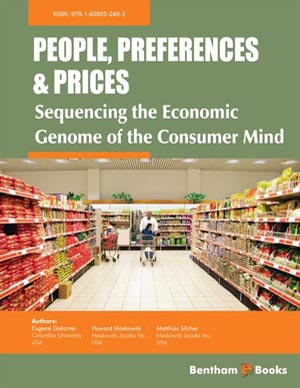Abstract
Experimental psychologists, consumer researchers, sensory specialists and a host of statistical mavens, gurus use paired comparisons, a form of choice, as the fundamental way to measure consumer response to stimuli. The origin of those approaches is, of course, the (incorrect) belief that the person cannot really act as a measuring instrument, and therefore the next best thing is to have people choose among alternatives. Our approach is far different. We certainly believe that people can act as measuring instruments. We show the elements of offers ‘head to head’. Rather than measuring the contributory effect of each stimulus element to one response, we measure the simultaneous contributory effects of all stimulus elements to all responses. We use the choice modeling to determine how the elements interact with each other, how they drive positive and negative responses.









.jpg)


